Sriram Srinivasan
HyMAD: A Hybrid Multi-Activity Detection Approach for Border Surveillance and Monitoring
Nov 18, 2025



Abstract:Seismic sensing has emerged as a promising solution for border surveillance and monitoring; the seismic sensors that are often buried underground are small and cannot be noticed easily, making them difficult for intruders to detect, avoid, or vandalize. This significantly enhances their effectiveness compared to highly visible cameras or fences. However, accurately detecting and distinguishing between overlapping activities that are happening simultaneously, such as human intrusions, animal movements, and vehicle rumbling, remains a major challenge due to the complex and noisy nature of seismic signals. Correctly identifying simultaneous activities is critical because failing to separate them can lead to misclassification, missed detections, and an incomplete understanding of the situation, thereby reducing the reliability of surveillance systems. To tackle this problem, we propose HyMAD (Hybrid Multi-Activity Detection), a deep neural architecture based on spatio-temporal feature fusion. The framework integrates spectral features extracted with SincNet and temporal dependencies modeled by a recurrent neural network (RNN). In addition, HyMAD employs self-attention layers to strengthen intra-modal representations and a cross-modal fusion module to achieve robust multi-label classification of seismic events. e evaluate our approach on a dataset constructed from real-world field recordings collected in the context of border surveillance and monitoring, demonstrating its ability to generalize to complex, simultaneous activity scenarios involving humans, animals, and vehicles. Our method achieves competitive performance and offers a modular framework for extending seismic-based activity recognition in real-world security applications.
RePose-NeRF: Robust Radiance Fields for Mesh Reconstruction under Noisy Camera Poses
Nov 11, 2025Abstract:Accurate 3D reconstruction from multi-view images is essential for downstream robotic tasks such as navigation, manipulation, and environment understanding. However, obtaining precise camera poses in real-world settings remains challenging, even when calibration parameters are known. This limits the practicality of existing NeRF-based methods that rely heavily on accurate extrinsic estimates. Furthermore, their implicit volumetric representations differ significantly from the widely adopted polygonal meshes, making rendering and manipulation inefficient in standard 3D software. In this work, we propose a robust framework that reconstructs high-quality, editable 3D meshes directly from multi-view images with noisy extrinsic parameters. Our approach jointly refines camera poses while learning an implicit scene representation that captures fine geometric detail and photorealistic appearance. The resulting meshes are compatible with common 3D graphics and robotics tools, enabling efficient downstream use. Experiments on standard benchmarks demonstrate that our method achieves accurate and robust 3D reconstruction under pose uncertainty, bridging the gap between neural implicit representations and practical robotic applications.
SCA: Streaming Cross-attention Alignment for Echo Cancellation
Nov 01, 2022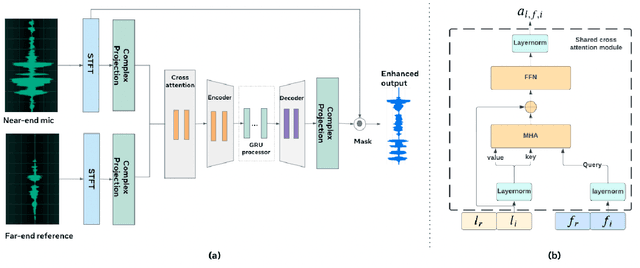

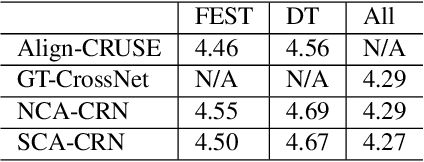
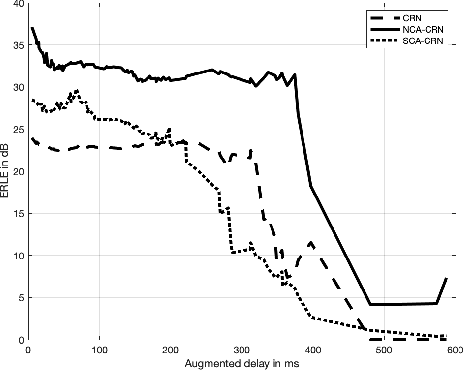
Abstract:End-to-End deep learning has shown promising results for speech enhancement tasks, such as noise suppression, dereverberation, and speech separation. However, most state-of-the-art methods for echo cancellation are either classical DSP-based or hybrid DSP-ML algorithms. Components such as the delay estimator and adaptive linear filter are based on traditional signal processing concepts, and deep learning algorithms typically only serve to replace the non-linear residual echo suppressor. This paper introduces an end-to-end echo cancellation network with a streaming cross-attention alignment (SCA). Our proposed method can handle unaligned inputs without requiring external alignment and generate high-quality speech without echoes. At the same time, the end-to-end algorithm simplifies the current echo cancellation pipeline for time-variant echo path cases. We test our proposed method on the ICASSP2022 and Interspeech2021 Microsoft deep echo cancellation challenge evaluation dataset, where our method outperforms some of the other hybrid and end-to-end methods.
Interspeech 2021 Deep Noise Suppression Challenge
Jan 10, 2021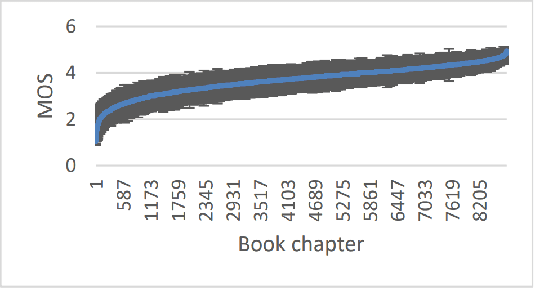
Abstract:The Deep Noise Suppression (DNS) challenge is designed to foster innovation in the area of noise suppression to achieve superior perceptual speech quality. We recently organized a DNS challenge special session at INTERSPEECH and ICASSP 2020. We open-sourced training and test datasets for the wideband scenario. We also open-sourced a subjective evaluation framework based on ITU-T standard P.808, which was also used to evaluate participants of the challenge. Many researchers from academia and industry made significant contributions to push the field forward, yet even the best noise suppressor was far from achieving superior speech quality in challenging scenarios. In this version of the challenge organized at INTERSPEECH 2021, we are expanding both our training and test datasets to accommodate full band scenarios. The two tracks in this challenge will focus on real-time denoising for (i) wide band, and(ii) full band scenarios. We are also making available a reliable non-intrusive objective speech quality metric called DNSMOS for the participants to use during their development phase.
Resonance: Replacing Software Constants with Context-Aware Models in Real-time Communication
Nov 23, 2020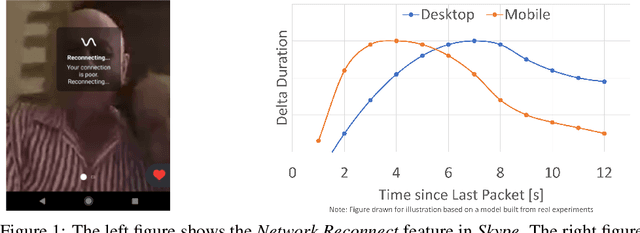


Abstract:Large software systems tune hundreds of 'constants' to optimize their runtime performance. These values are commonly derived through intuition, lab tests, or A/B tests. A 'one-size-fits-all' approach is often sub-optimal as the best value depends on runtime context. In this paper, we provide an experimental approach to replace constants with learned contextual functions for Skype - a widely used real-time communication (RTC) application. We present Resonance, a system based on contextual bandits (CB). We describe experiences from three real-world experiments: applying it to the audio, video, and transport components in Skype. We surface a unique and practical challenge of performing machine learning (ML) inference in large software systems written using encapsulation principles. Finally, we open-source FeatureBroker, a library to reduce the friction in adopting ML models in such development environments
The INTERSPEECH 2020 Deep Noise Suppression Challenge: Datasets, Subjective Testing Framework, and Challenge Results
May 29, 2020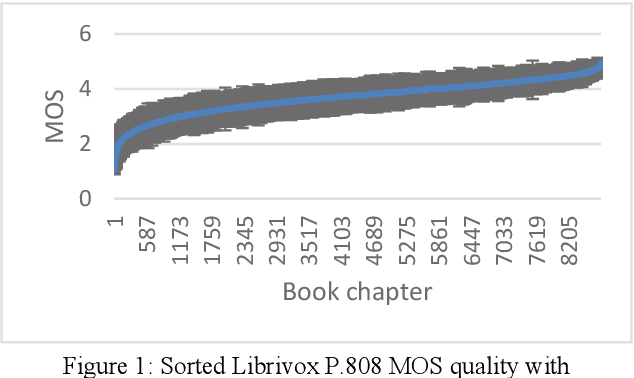
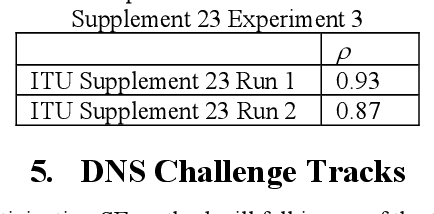
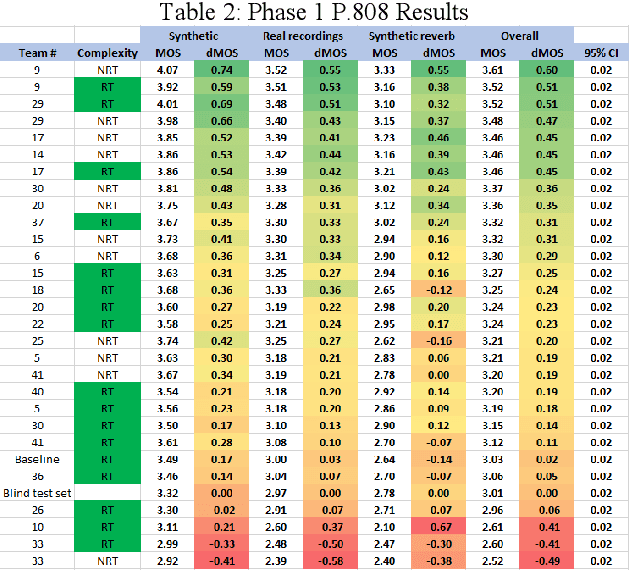
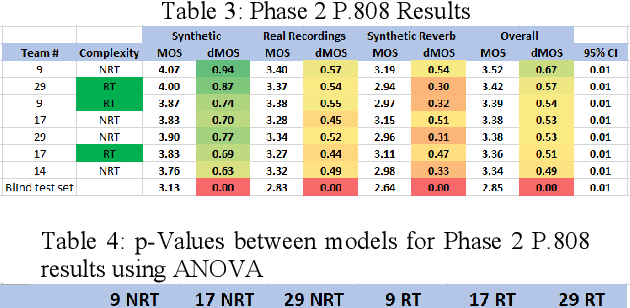
Abstract:The INTERSPEECH 2020 Deep Noise Suppression (DNS) Challenge is intended to promote collaborative research in real-time single-channel Speech Enhancement aimed to maximize the subjective (perceptual) quality of the enhanced speech. A typical approach to evaluate the noise suppression methods is to use objective metrics on the test set obtained by splitting the original dataset. While the performance is good on the synthetic test set, often the model performance degrades significantly on real recordings. Also, most of the conventional objective metrics do not correlate well with subjective tests and lab subjective tests are not scalable for a large test set. In this challenge, we open-sourced a large clean speech and noise corpus for training the noise suppression models and a representative test set to real-world scenarios consisting of both synthetic and real recordings. We also open-sourced an online subjective test framework based on ITU-T P.808 for researchers to reliably test their developments. We evaluated the results using P.808 on a blind test set. The results and the key learnings from the challenge are discussed. The datasets and scripts can be found here for quick access https://github.com/microsoft/DNS-Challenge.
Estimating Aggregate Properties In Relational Networks With Unobserved Data
Jan 27, 2020
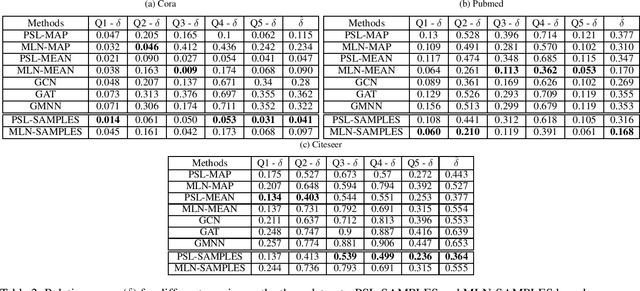
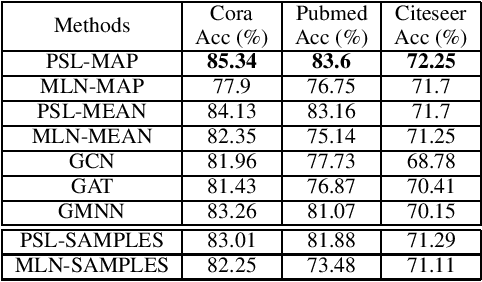
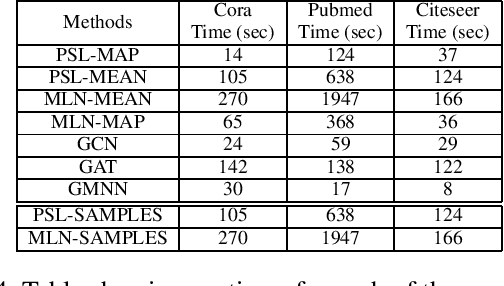
Abstract:Aggregate network properties such as cluster cohesion and the number of bridge nodes can be used to glean insights about a network's community structure, spread of influence and the resilience of the network to faults. Efficiently computing network properties when the network is fully observed has received significant attention (Wasserman and Faust 1994; Cook and Holder 2006), however the problem of computing aggregate network properties when there is missing data attributes has received little attention. Computing these properties for networks with missing attributes involves performing inference over the network. Statistical relational learning (SRL) and graph neural networks (GNNs) are two classes of machine learning approaches well suited for inferring missing attributes in a graph. In this paper, we study the effectiveness of these approaches in estimating aggregate properties on networks with missing attributes. We compare two SRL approaches and three GNNs. For these approaches we estimate these properties using point estimates such as MAP and mean. For SRL-based approaches that can infer a joint distribution over the missing attributes, we also estimate these properties as an expectation over the distribution. To compute the expectation tractably for probabilistic soft logic, one of the SRL approaches that we study, we introduce a novel sampling framework. In the experimental evaluation, using three benchmark datasets, we show that SRL-based approaches tend to outperform GNN-based approaches both in computing aggregate properties and predictive accuracy. Specifically, we show that estimating the aggregate properties as an expectation over the joint distribution outperforms point estimates.
The INTERSPEECH 2020 Deep Noise Suppression Challenge: Datasets, Subjective Speech Quality and Testing Framework
Jan 23, 2020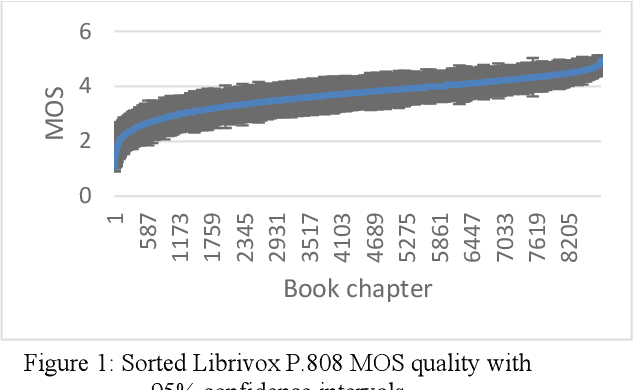
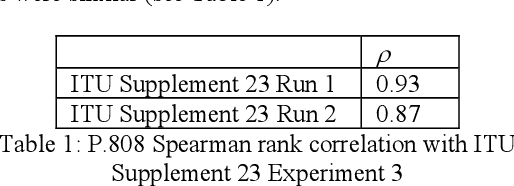
Abstract:The INTERSPEECH 2020 Deep Noise Suppression Challenge is intended to promote collaborative research in real-time single-channel Speech Enhancement aimed to maximize the subjective (perceptual) quality of the enhanced speech. A typical approach to evaluate the noise suppression methods is to use objective metrics on the test set obtained by splitting the original dataset. Many publications report reasonable performance on the synthetic test set drawn from the same distribution as that of the training set. However, often the model performance degrades significantly on real recordings. Also, most of the conventional objective metrics do not correlate well with subjective tests and lab subjective tests are not scalable for a large test set. In this challenge, we open-source a large clean speech and noise corpus for training the noise suppression models and a representative test set to real-world scenarios consisting of both synthetic and real recordings. We also open source an online subjective test framework based on ITU-T P.808 for researchers to quickly test their developments. The winners of this challenge will be selected based on subjective evaluation on a representative test set using P.808 framework.
OpenSpiel: A Framework for Reinforcement Learning in Games
Oct 10, 2019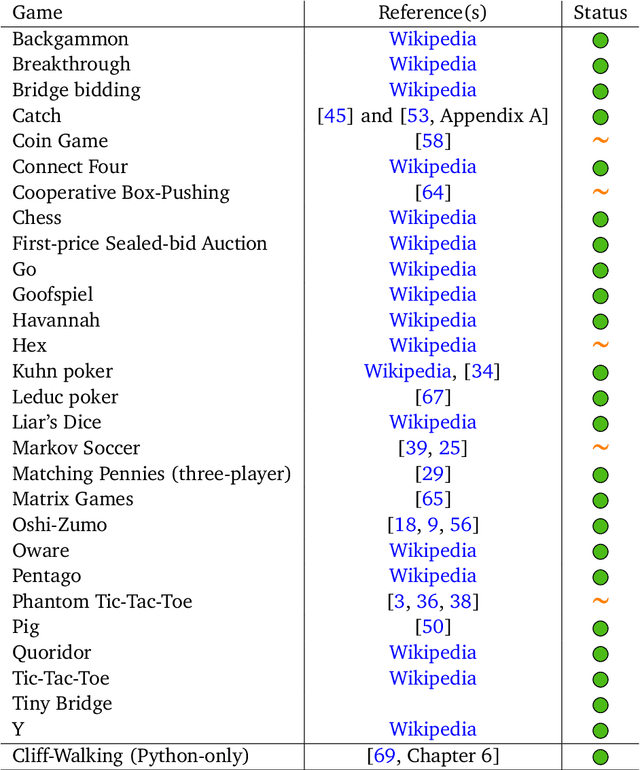
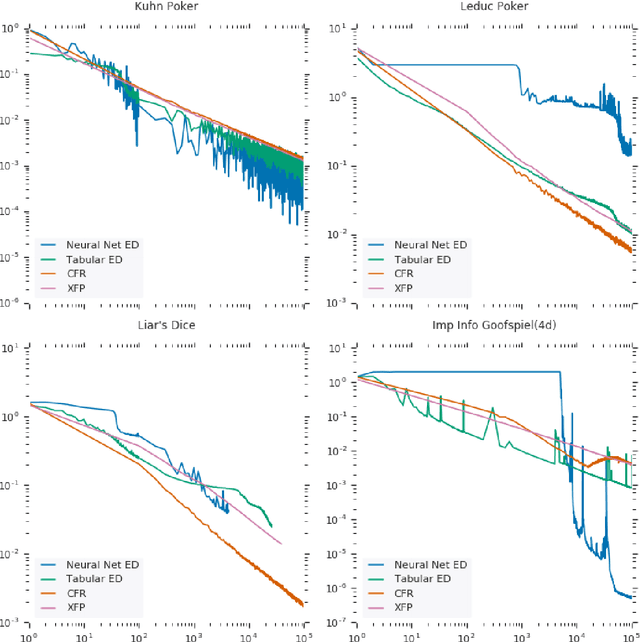
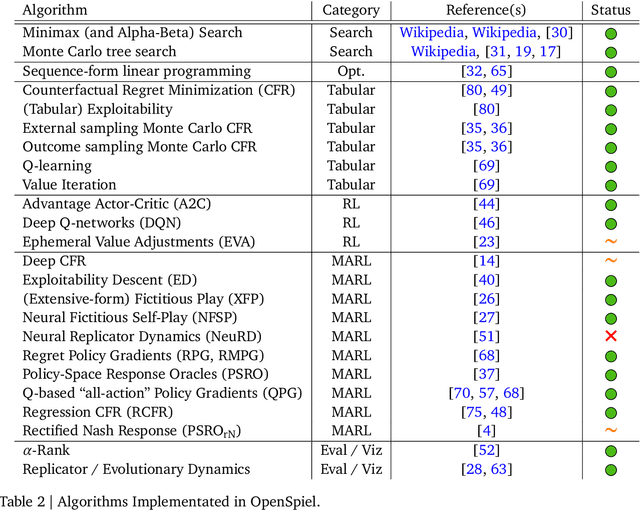
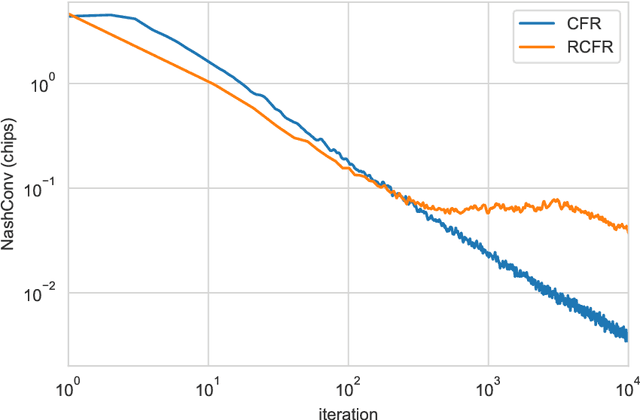
Abstract:OpenSpiel is a collection of environments and algorithms for research in general reinforcement learning and search/planning in games. OpenSpiel supports n-player (single- and multi- agent) zero-sum, cooperative and general-sum, one-shot and sequential, strictly turn-taking and simultaneous-move, perfect and imperfect information games, as well as traditional multiagent environments such as (partially- and fully- observable) grid worlds and social dilemmas. OpenSpiel also includes tools to analyze learning dynamics and other common evaluation metrics. This document serves both as an overview of the code base and an introduction to the terminology, core concepts, and algorithms across the fields of reinforcement learning, computational game theory, and search.
A scalable noisy speech dataset and online subjective test framework
Sep 17, 2019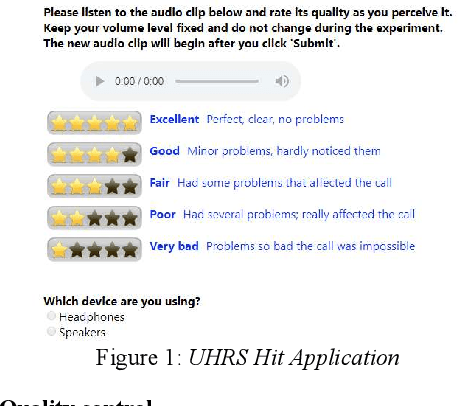
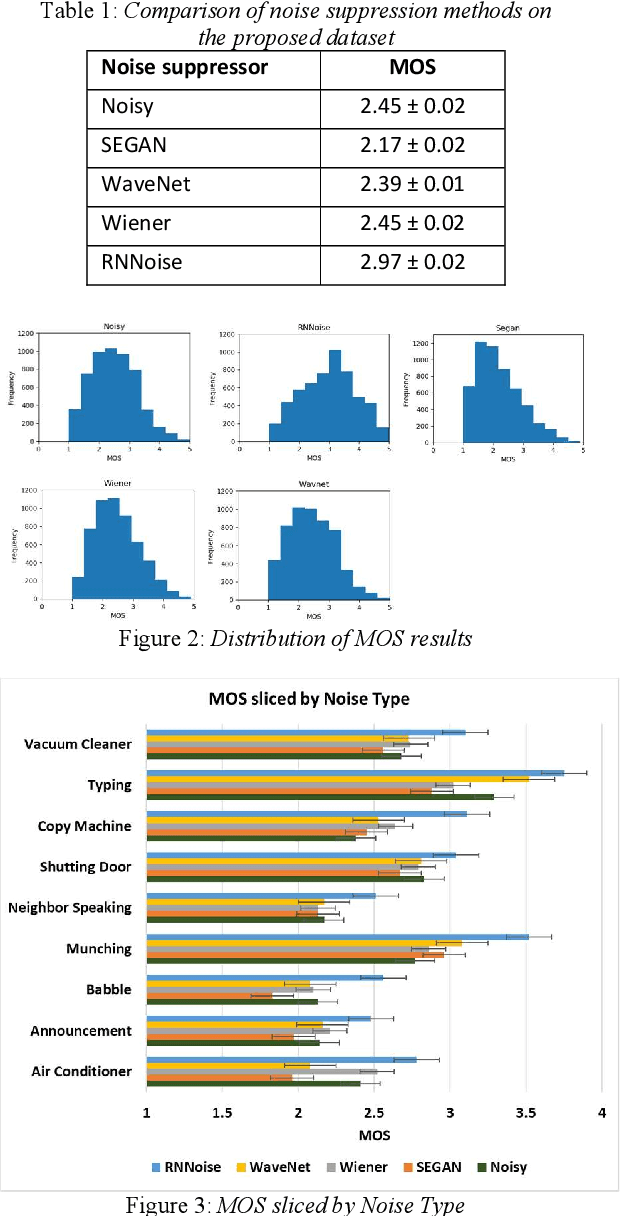
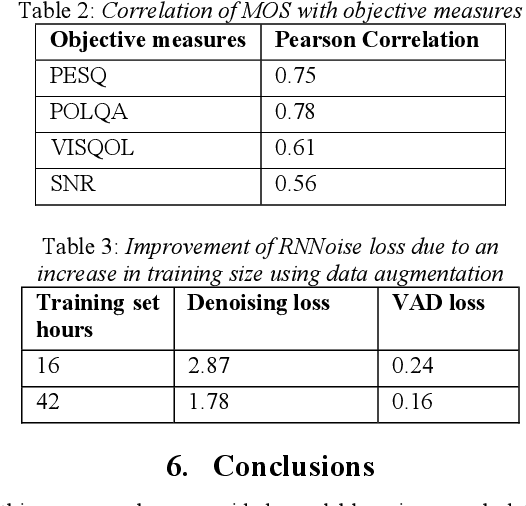
Abstract:Background noise is a major source of quality impairments in Voice over Internet Protocol (VoIP) and Public Switched Telephone Network (PSTN) calls. Recent work shows the efficacy of deep learning for noise suppression, but the datasets have been relatively small compared to those used in other domains (e.g., ImageNet) and the associated evaluations have been more focused. In order to better facilitate deep learning research in Speech Enhancement, we present a noisy speech dataset (MS-SNSD) that can scale to arbitrary sizes depending on the number of speakers, noise types, and Speech to Noise Ratio (SNR) levels desired. We show that increasing dataset sizes increases noise suppression performance as expected. In addition, we provide an open-source evaluation methodology to evaluate the results subjectively at scale using crowdsourcing, with a reference algorithm to normalize the results. To demonstrate the dataset and evaluation framework we apply it to several noise suppressors and compare the subjective Mean Opinion Score (MOS) with objective quality measures such as SNR, PESQ, POLQA, and VISQOL and show why MOS is still required. Our subjective MOS evaluation is the first large scale evaluation of Speech Enhancement algorithms that we are aware of.
 Add to Chrome
Add to Chrome Add to Firefox
Add to Firefox Add to Edge
Add to Edge